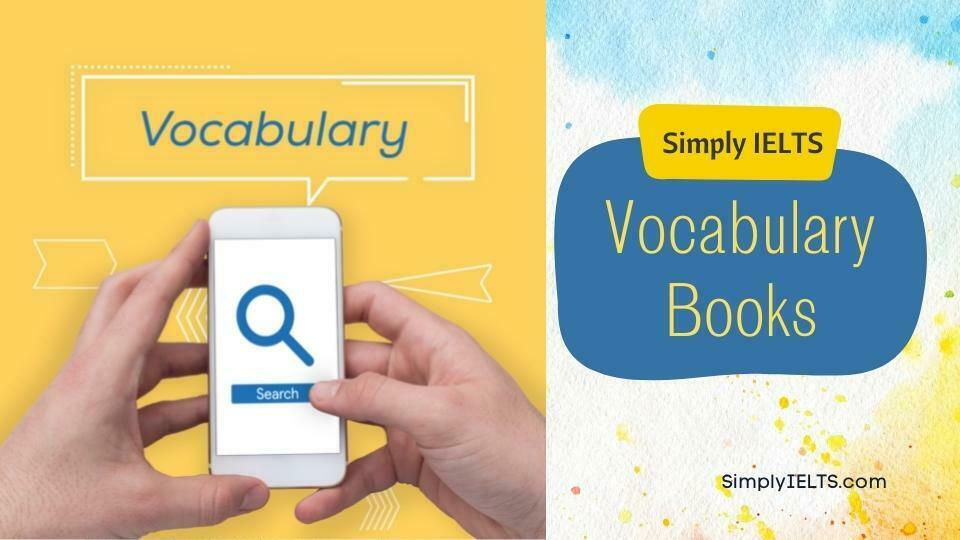Latest IELTS cue cards for January to April 2023

“Get Ready for the IELTS with the Latest Cue Cards for January to April 2023!”

Are you preparing for the IELTS speaking exam? Looking for some fresh and challenging topics to practice with? Look no further! The latest IELTS cue cards for January to April 2023 have just been released, and they are sure to provide you with plenty of opportunities to showcase your English language skills.
From describing a memorable meeting you were a speaker in, to discussing an international problem, to recommending a place in your country to visit, these cue cards cover a wide range of topics that are sure to keep you on your toes.
But don’t worry, we’ve got your back. In this article, we’ll provide an overview of the latest cue card topics and offer some tips for using them to effectively prepare for the IELTS speaking exam.
So what are you waiting for? Get ready to shine in the IELTS with the latest cue cards for January to April 2023!
What is the structure of IELTS speaking exam?
In Part 1 of the speaking exam, you will be asked a series of general questions about yourself and your life. You will have about 1-2 minutes to answer each question.
In Part 2 of the speaking exam, you will be given a cue card with a topic and asked to speak about it for 2 minutes. You will be given 1 minute to prepare your response and then asked to speak for a further 1-2 minutes.
In Part 3 of the speaking exam, you will be asked a series of follow-up questions related to the topic from Part 2. You will have about 4-5 minutes to answer these questions.
Overall, it is important to use your time effectively and speak at a natural pace during the IELTS speaking exam. It is also important to pay attention to the specific requirements and instructions given for each part of the exam.
Latest IELTS cue cards for January to April 2023
The latest IELTS cue cards for January to April 2023 include:
- Describe a website you visit often: You can talk about a website you often visit and explain why you like it. You can talk about the features and the benefits you get from the website, and how it helps you in your daily life.
- Talk about an own thing which would like to remove: You can talk about an object you own that you no longer use or like and explain why you would like to remove it. You can also talk about if you have thought of ways to dispose of it responsibly.
- An island you would like to visit: You can talk about an island that you would like to visit and explain why it interests you. You can also talk about the things you would like to do there, and what kind of experiences you hope to have on the island.
- Describe a poisonous plant: You can talk about a specific poisonous plant and explain its characteristics, such as its appearance, habitat, and the toxins it contains. Also, explain the consequences of ingesting or coming in contact with the plant and the way it can be identified.
- Interesting job you would like to do: You can talk about a job that interests you and explain why you would like to do it. You can also talk about the skills and qualifications required for the job and any steps you are taking to prepare for it.
- Something happened that made you happy: You can talk about a specific event or situation that made you happy and explain why it had a positive impact on you. You can also talk about how the event made you feel and what you learned from it.
- Describe something important that you lost in the past: You can talk about a specific object or thing that was important to you and explain why it was important. Also, explain the circumstances of how you lost it, and how you felt when you realized it was gone.
- TALK ABOUT A MATH SKILL THAT YOU LEARNED IN YOUR PRIMARY/ELEMENTARY SCHOOL: You can talk about a math skill you learned in primary or elementary school, such as addition, subtraction, multiplication or division, etc. Explain how you learned it, and how you used it in solving problems and math exercises.
- compare Manmade Beauty v/s Natural Beauty: You can compare the beauty of manmade and natural things. Explain the beauty of man-made things, such as architecture, technology, and design and how it is different from the beauty of natural things such as mountains, oceans, and forests.
- Talk about a wish that you could not accomplish for a long time: You can talk about a wish or goal you have had for a long time but have not been able to accomplish. Explain why it has been difficult to accomplish and what steps you are taking to make it happen.
- Talk about a day off that you took to relax from work: You can talk about a day off you took specifically to relax and unwind from work. Explain what you did on that day and how it helped you relax and rejuvenate.
- Describe a village near your hometown: You can talk about a village near your hometown and explain its characteristics, such as its location, population, and history. You can also talk about any interesting features of the village, such as landmarks or traditional customs, and how it is different from your hometown.
- Describe an Advertisement which you found very persuasive: You can talk about an advertisement that you found particularly persuasive. Explain the message or product being advertised, the methods used to persuade you, and why you ultimately decided to take action or make a purchase as a result of the advertisement.
- Describe a small business that you would like to open (or start or run or own or have) if you had the chance: You can talk about a small business idea you have and explain why you would like to start it. Explain what products or services the business would offer and the target audience. Also, explain how you would plan to market and finance the business.
- A speech that somebody delivered and you heard: You can talk about a speech that you heard and explain who the speaker was, the topic of the speech, and the main points the speaker made. Also, explain how you felt about the speech, whether you found it persuasive or not and whether it had an impact on you.
- Describe a polite person you know: You can talk about a person you know who you would consider to be polite and explain what qualities they possess that make them polite. Explain examples of situations where they have exhibited politeness and how it has impacted the people around them.
- Describe a bicycle/motorbike/car trip that is interesting You can describe a trip you took by bicycle, motorbike or car that was interesting. Explain where you went, who you went with, and what you did on the trip. Also, describe the landscapes, the sites you saw and any obstacles or challenges you encountered during the trip.
- Describe your favorite weather: You can describe your favorite type of weather and explain why you enjoy it. Explain the temperature, the atmosphere, and the activities you like to do during that type of weather, and how it makes you feel.
- Describe a trip that you took by public transportation: You can talk about a trip you took by public transportation, such as a bus or train, and explain where you went, why you took the trip, and what you did while you were there. Also, you can talk about the experiences you had during the journey, the interaction with other passengers, and how easy or difficult was to use the public transportation system.
- Something happened that made you happy: You can talk about a specific event or situation that made you happy and explain why it had a positive impact on you. You can also talk about how the event made you feel and what you learned from it.
- A thing you would like to learn or do: You can talk about something you would like to learn or do, and explain why it interests you. You can also talk about any steps you are currently taking to pursue this interest and any challenges you may have encountered while trying to learn or do it.
- Describe the time when someone took a good photograph of you: You can talk about a time when someone took a good photograph of you and explain what the photo looked like, who took it, and what the occasion was. You can also explain how you felt when the photo was taken and if you still have the photo and where you keep it.
- Describe an experience when you spent your time with a child: You can talk about a specific experience when you spent time with a child, such as a younger sibling, a family member’s child, or a child in a volunteer setting. Describe the activities you did together, what you learned from the experience, and how the child’s perspective or behavior changed as a result of your interaction.
- Describe a tall building in your hometown you like or dislike: You can talk about a tall building in your hometown that you either like or dislike, and explain why. You can also talk about its location, design, and what kind of activities take place in the building, and how the building affects the surrounding area.
- Describe a meeting in which you were speaker: In this cue card topic, you may be asked to describe a meeting or presentation that you led or spoke at. This could be a professional meeting, a class presentation, or any other type of meeting where you had an active role. To prepare for this cue card topic, think about a meeting that you have spoken at in the past and practice describing the purpose of the meeting, the audience, the content of your presentation, and any challenges or successes you experienced.
- Describe a time when you had to walk barefoot: In this cue card topic, you may be asked to describe a time when you had to walk without shoes or socks. This could be because you lost your shoes, forgot to bring them, or were in a situation where it was not appropriate to wear them. To prepare for this cue card topic, think about a time when you had to walk barefoot and practice describing the circumstances, the feelings or sensations you experienced, and any challenges or advantages you encountered.
- Describe a house or apartment that you would like to live in: In this cue card topic, you may be asked to describe a house or apartment that you would like to live in. This could be your dream home, or it could be a more realistic option that you are considering. To prepare for this cue card topic, think about the features and amenities that are important to you in a home and practice describing the layout, location, and style of the house or apartment you would like to live in.
- Describe a person who inspired you: In this IELTS cue card topic, you may be asked to describe a person who has inspired you or had a positive influence on your life. This could be a family member, a friend, a teacher, or anyone else who has made a meaningful impact on you. To prepare for this cue card topic, think about a person who has inspired you and practice describing their characteristics, actions, or qualities that have had an impact on you, and any specific ways in which they have influenced or inspired you.
- Describe your favorite beverage: In this cue card topic, you may be asked to describe your favorite drink, whether it is a coffee, tea, soda, smoothie, or something else. To prepare for this cue card topic, think about the characteristics of your favorite beverage and practice describing the taste, texture, and any special ingredients or flavors that you like.
- Describe an international problem: In this IELTS cue card topic, you may be asked to describe a global issue or problem that you are concerned about. This could be a social, environmental, or political issue that you feel strongly about. To prepare for this cue card topic, think about an international problem that you care about and practice describing the causes, effects, and potential solutions for this issue.
- Describe a flower you received as a gift: In this IELTS cue card topic, you may be asked to describe a flower that you received as a gift or that has special meaning to you. To prepare for this cue card topic, think about a flower that you have received or that has significance for you and practice describing the appearance, fragrance, and any special memories or associations you have with this flower.
- Describe a bad weather experience: In this cue card topic, you may be asked to describe a time when you experienced extreme or unusual weather conditions. This could be a natural disaster, such as a hurricane or earthquake, or it could be a less severe but still memorable weather event, such as a snowstorm or heatwave. To prepare for this cue card topic, think about a time when you experienced bad weather and practice describing the details of the event, the effects it had on you and your surroundings, and any precautions or measures you took.
- Describe a rule you like to follow: In this cue card topic, you may be asked to describe a rule or guideline that you find important or beneficial to follow. This could be a personal rule, such as a daily routine or a goal you set for yourself, or it could be a rule that you follow in your community or society. To prepare for this cue card topic, think about a rule that is important to you and practice describing the reason why you follow this rule, the benefits it brings, and any challenges or obstacles you have encountered in following it.
- Describe a time when you had a bad experience with your teacher: In this IELTS cue card topic, you may be asked to describe a time when you had a negative interaction or conflict with a teacher or instructor. This could be due to a disagreement, a misunderstanding, or any other reason. To prepare for this cue card topic, think about a time when you had a bad experience with a teacher and practice describing the details of the event, the feelings or emotions it generated, and any actions you took or outcomes that resulted from the experience.
- Describe a place in your country that you would recommend others to visit: In this cue card topic, you may be asked to describe a place in your country that you think is worth visiting. This could be a city, a natural landmark, a cultural attraction, or anything else that you believe is special or unique about your country. To prepare for this cue card topic, think about a place in your country that you would recommend to others and practice describing the location, the attractions or activities it offers, and the cultural or historical significance of the place.
- Describe a time when you missed an appointment: In this cue card topic, you may be asked to describe a time when you missed an appointment or failed to attend an event as planned. This could be due to a misunderstanding, a miscommunication, or any other reason. To prepare for this cue card topic, think about a time when you missed an appointment and practice describing the circumstances, the consequences, and any lessons you learned from the experience.
- Describe a popular place for sports: In this IELTS cue card topic, you may be asked to describe a place that is well-known or popular for sports. This could be a stadium, an arena, a park, or any other type of venue where sports are played or watched. To prepare for this cue card topic, think about a place that is popular for sports and practice describing the location, the types of sports played or watched there, and any notable events or achievements that have taken place at this venue.
In conclusion, the latest IELTS cue cards for January to April 2023 offer a wide range of topics for you to practice speaking about. By using these cue cards and incorporating the tips and strategies mentioned in this article, you can effectively prepare for the IELTS speaking exam and demonstrate your communication skills in English.
For each of these cue card topics, you can expect to be asked questions that probe more deeply into your experiences and opinions. It is important to think about how you can effectively describe and discuss these topics using a range of vocabulary and grammatically correct structures.
To prepare for the IELTS speaking exam, it is important to practice speaking as much as possible, and to focus on improving your pronunciation and fluency. You can do this by finding a study partner, joining an English language club, or participating in online speaking groups. You can also try listening to native speakers and imitating their pronunciation.
To expand your vocabulary and use a variety of sentence structures, try reading a variety of texts and pay attention to the language and structures used. You can also try using a thesaurus or looking up new words and phrases to use in your speaking practice.
Using cue cards is another effective way to prepare for the IELTS speaking exam. To answer any cue card easily, start by writing down key points and vocabulary related to a topic, and then use them to practice speaking. You can also try role-playing different speaking scenarios with a partner or group, and use cue cards to help guide your conversation.
How to answer any IELTS cue card effectively?
Here are some tips for answering any IELTS cue card effectively:
- Read the prompt carefully and make sure you understand what is being asked. Take a few seconds to think about your response and what you want to say.
- Use the provided key points or vocabulary as a starting point, but try not to rely on them too heavily. Instead, use them to help you come up with your own ideas and expand on the topic.
- Organize your thoughts before you start speaking. This can help you present your ideas in a clear and logical way.
- Use a variety of sentence structures and vocabulary to make your response more interesting and engaging. Avoid repeating the same phrases or words too often.
- Speak at a natural pace and use appropriate intonation and stress to convey your meaning.
- Use examples or anecdotes to illustrate your points and make your response more relatable and memorable.
- Pay attention to the time limits and try to use your time effectively. Avoid rambling or going off on tangents.
- If you don’t know a word or phrase, try to explain the concept in other words or use a synonym. Don’t be afraid to pause and take a moment to think.
- Practice speaking as much as possible to improve your fluency and confidence. You can use cue cards or other speaking prompts to practice at home.
Tips to answer the IELTS cue card and get a high score
- Use the IELTS cue cards as a starting point for your practice, but try to go beyond just repeating the information on the card. Practice speaking extemporaneously and adding your own thoughts and ideas to the discussion.
- Pay attention to the language and vocabulary used in the cue cards, and try to incorporate similar language and vocabulary into your practice.
- Practice speaking at a natural pace and using appropriate intonation and stress.
- Pay attention to your body language and facial expressions, and try to use them to add emphasis and convey meaning.
- Practice speaking in different settings, such as with a study partner, in a group, or in front of a mirror. This will help you become more comfortable and confident in any speaking situation.
- Use the cue cards as an opportunity to practice different parts of the IELTS speaking exam, such as Part 1 (introductions and general questions), Part 2 (long turn), and Part 3 (discussion and opinion).
By following these tips and using the latest IELTS cue cards for January to April 2023 as a guide, you can effectively prepare for the IELTS speaking exam and demonstrate your English language skills. Good luck!







Responses